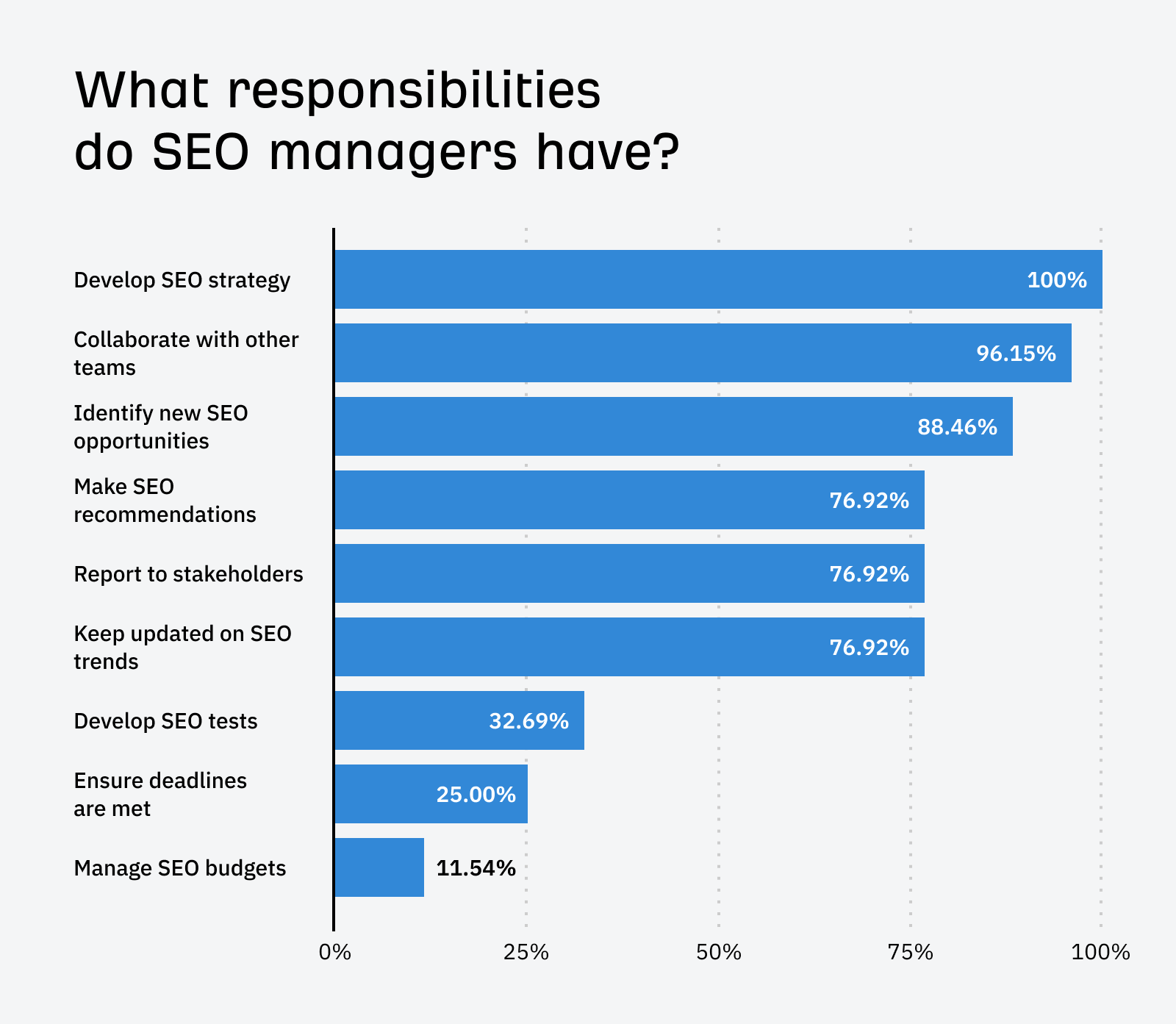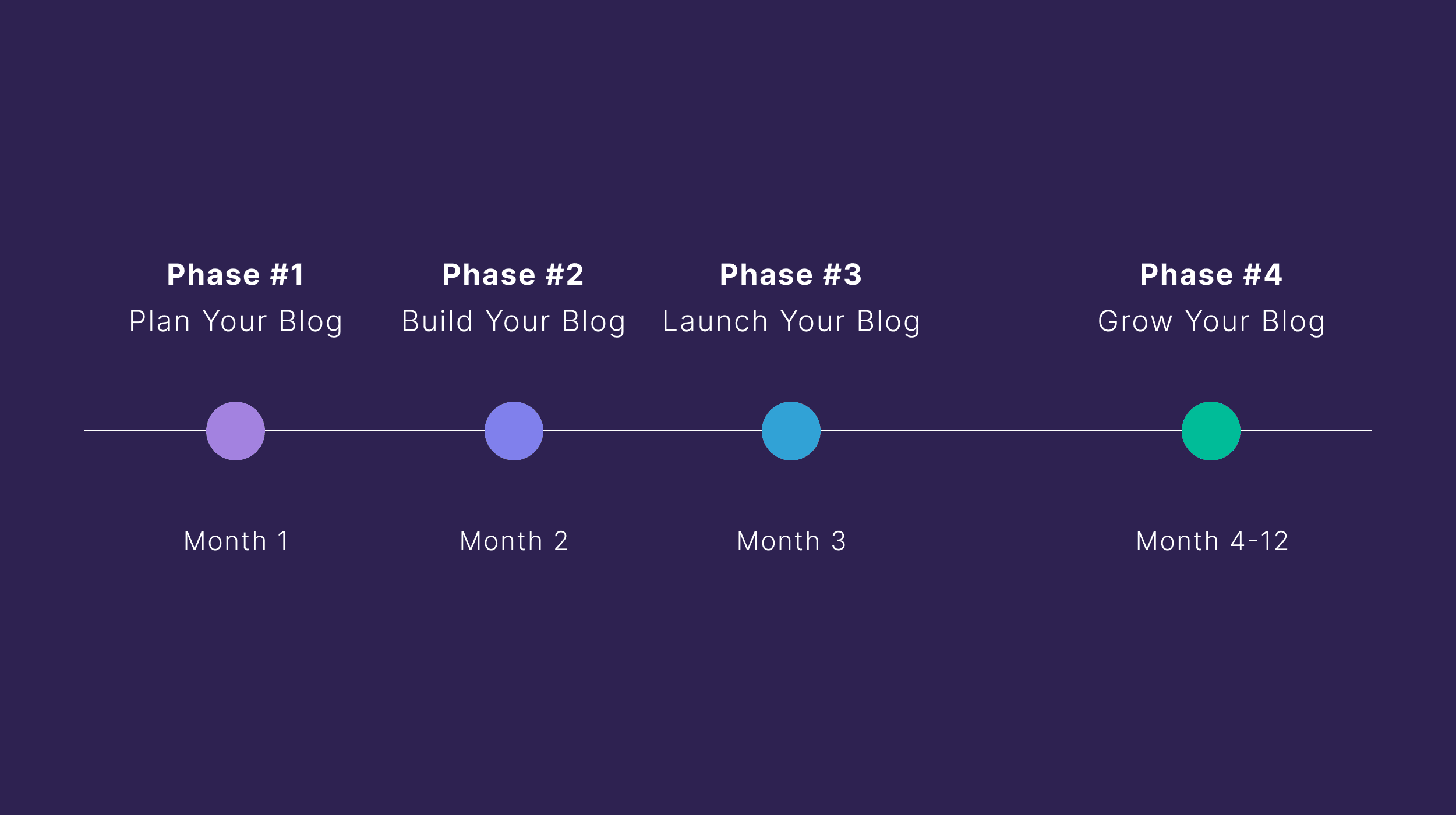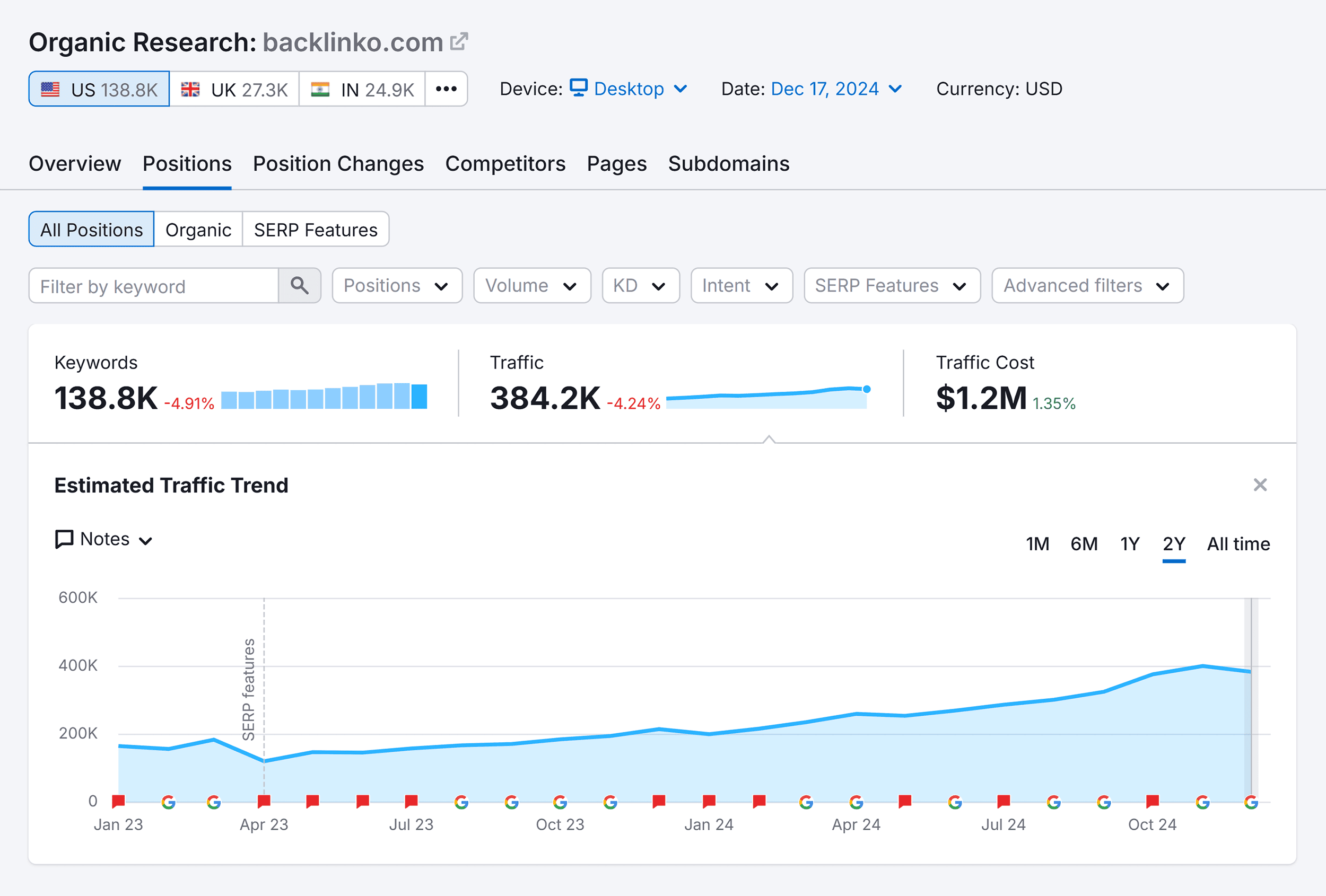SEO managers are responsible for developing the strategy to improve a website’s search visibility and organic traffic. But what exactly do they do? What skills and qualifications do they need? And how can you become one?
To find out, I looked through 52 SEO manager job listings on LinkedIn and asked a few actual SEO managers.
Sidenote.
I only focused on job descriptions that asked for “SEO manager.” That means no “SEO account manager,” “technical SEO manager,” and the like. (Though job listings for Senior SEO Managers were included.)
Both agencies and companies hire SEO managers, but the data suggests that it’s most commonly an in-house position. Only 10.7% of the job listings I analyzed were for roles in agencies.
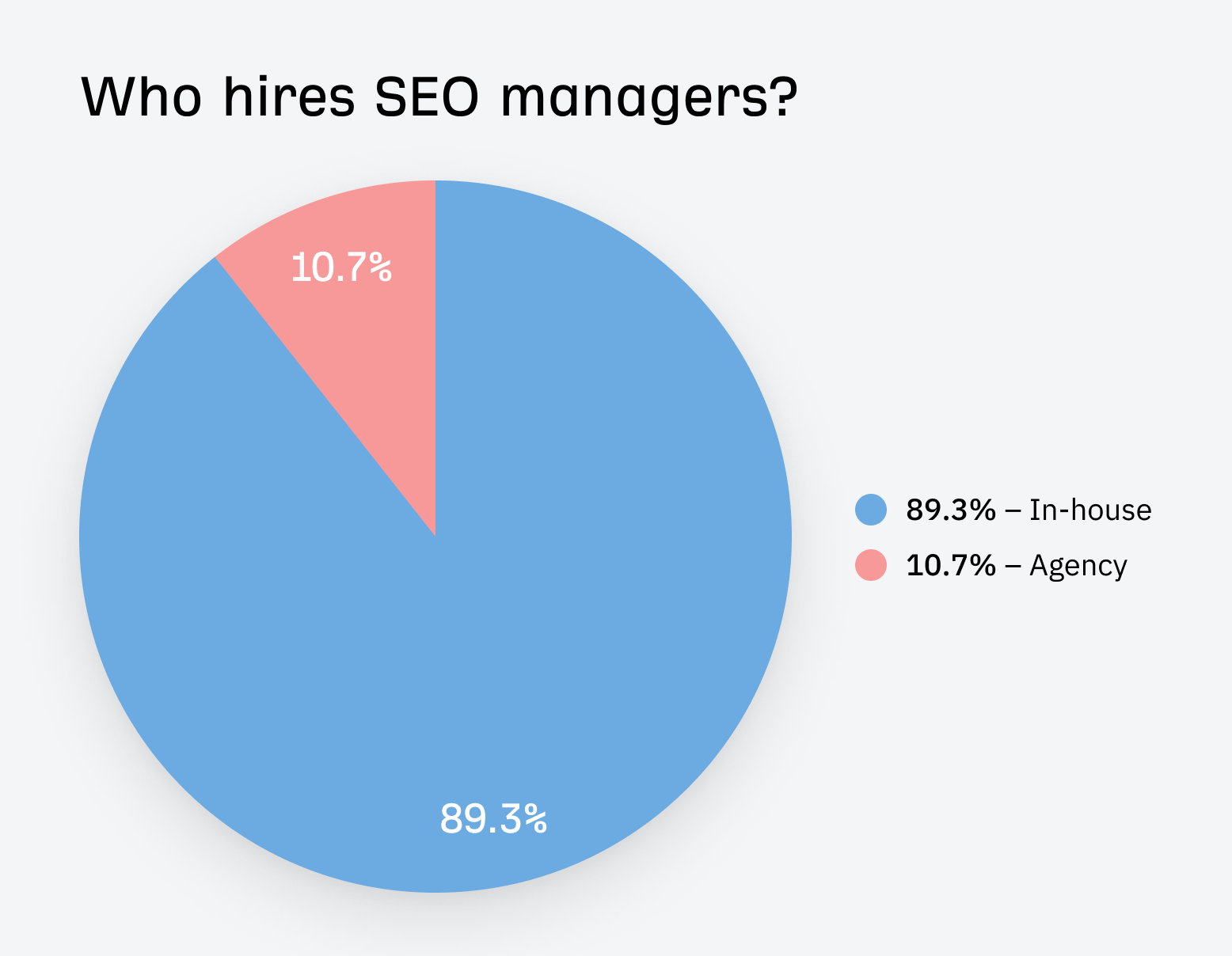
I’m actually not entirely sure why this is. My best guess is that SEO agencies aren’t always structured in a way that requires an “SEO manager.”
For example, here’s how SEO agency Bubblegum Search structures their team:
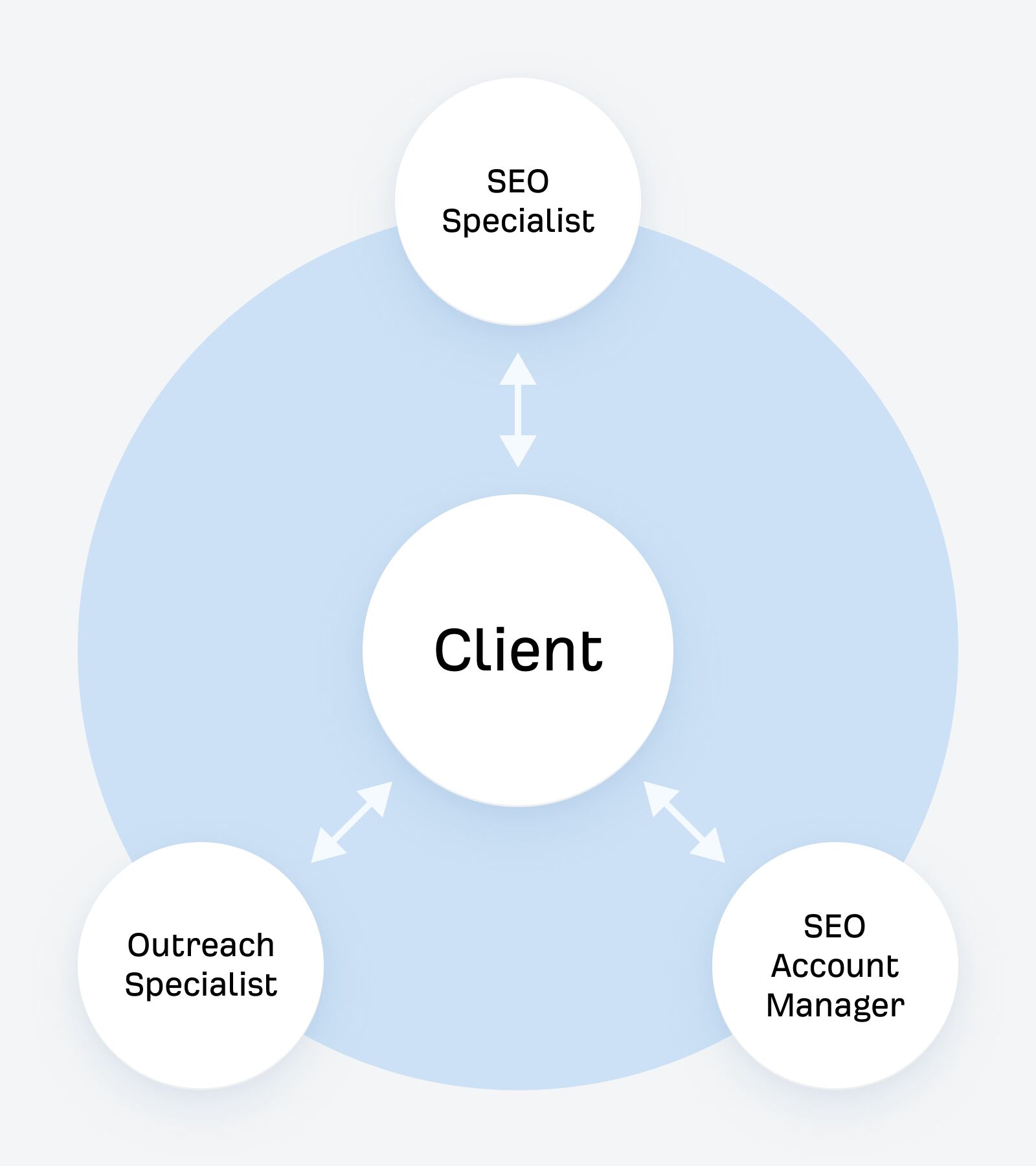
This is known as a pod structure and, as you can see, there’s no SEO manager in the picture.
Here’s their founder and director, Matt Cayless, explaining why they use this structure:
Each client is matched with a pod consisting of an account manager, an SEO specialist, and an outreach specialist. This ensures that the client receives a well-rounded service, with each member bringing their unique expertise to the table.
Further reading
75.1% of US SEO managers make $100,000-$159,999. Roughly half of those make $120,000-$139,999.
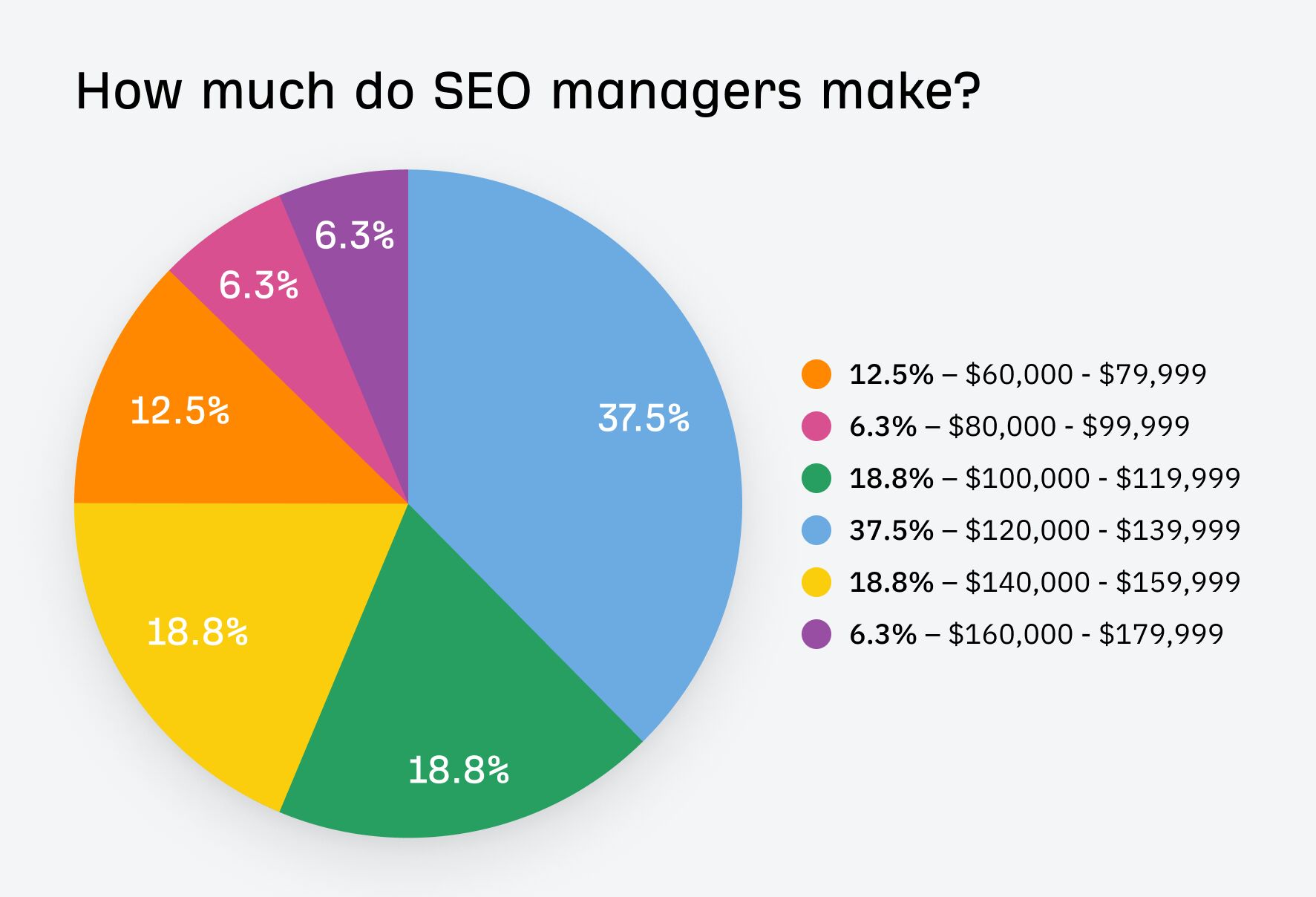
About the data
It was surprisingly difficult to get figures for this because the job listings gave a unique salary range rather than a single figure—some of which were huge!
For example, the salary range for this job is $111,000-$185,000:
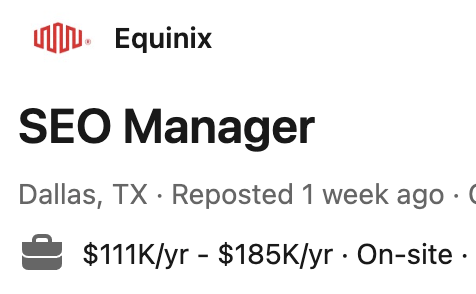
That’s a range of $74,000. Madness!
So, the data you see in the graph above is averages grouped into buckets. For example, if a job listing quoted a salary range of $100,000-$200,000, I took the average ($150,000) and grouped it into the appropriate bucket.
I thought it’d also be interesting to see how salaries varied by education and experience level, so I ran the data…
Education-wise, there’s virtually no benefit to having a degree. Positions requesting applicants have one pay just 1.77% more on average:
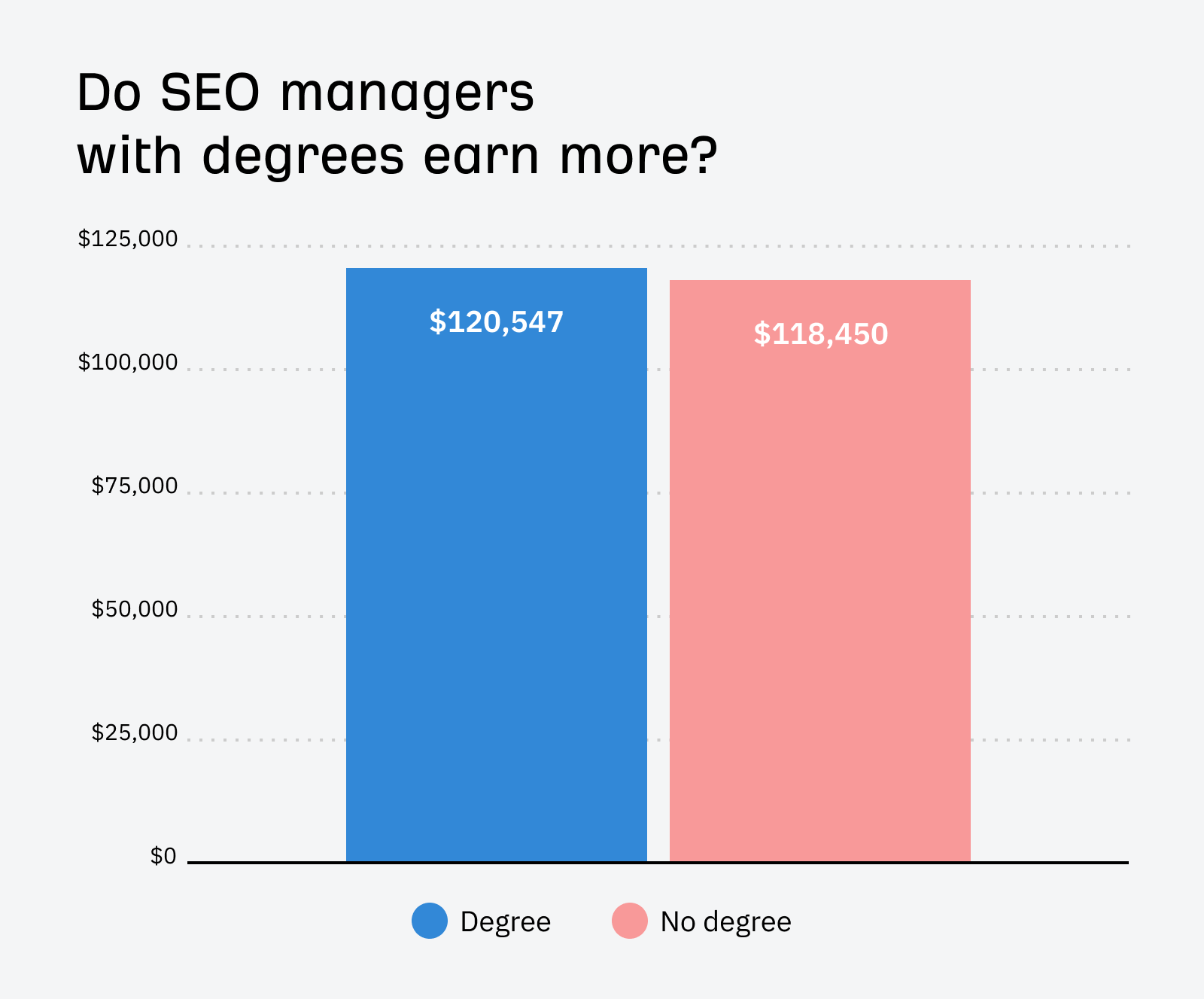
It’s a different picture when it comes to experience. Job listings asking for 2+ years of experience pay roughly $39,000 less than those asking for 4+ years:
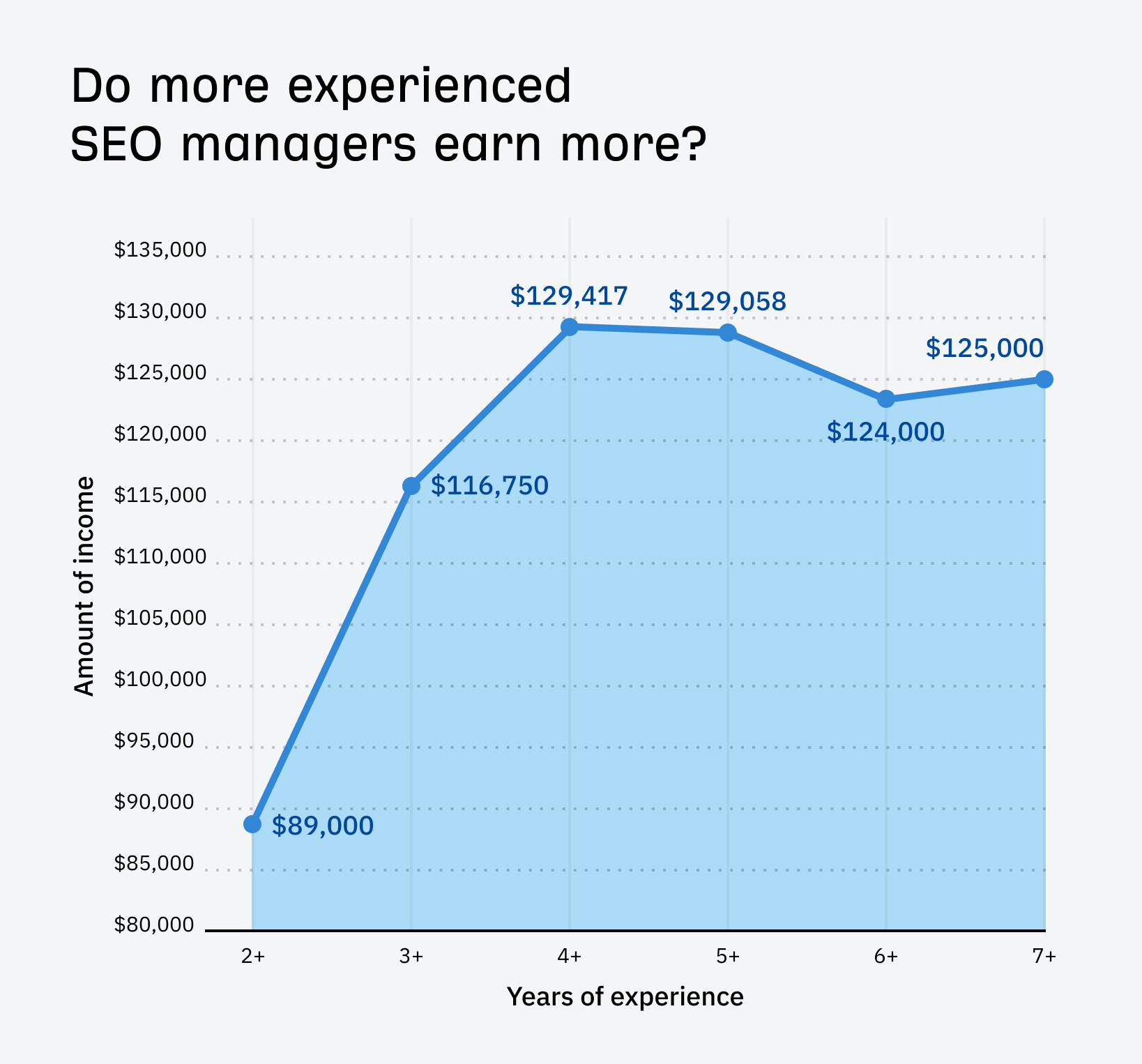
Salary growth tapers off after four years, with listings asking for 5+ years of experience paying roughly the same.
An SEO manager is far from an entry-level position. Every job listing I looked at asked for at least two years of experience, with the majority (54.2%) asking for at least five years.
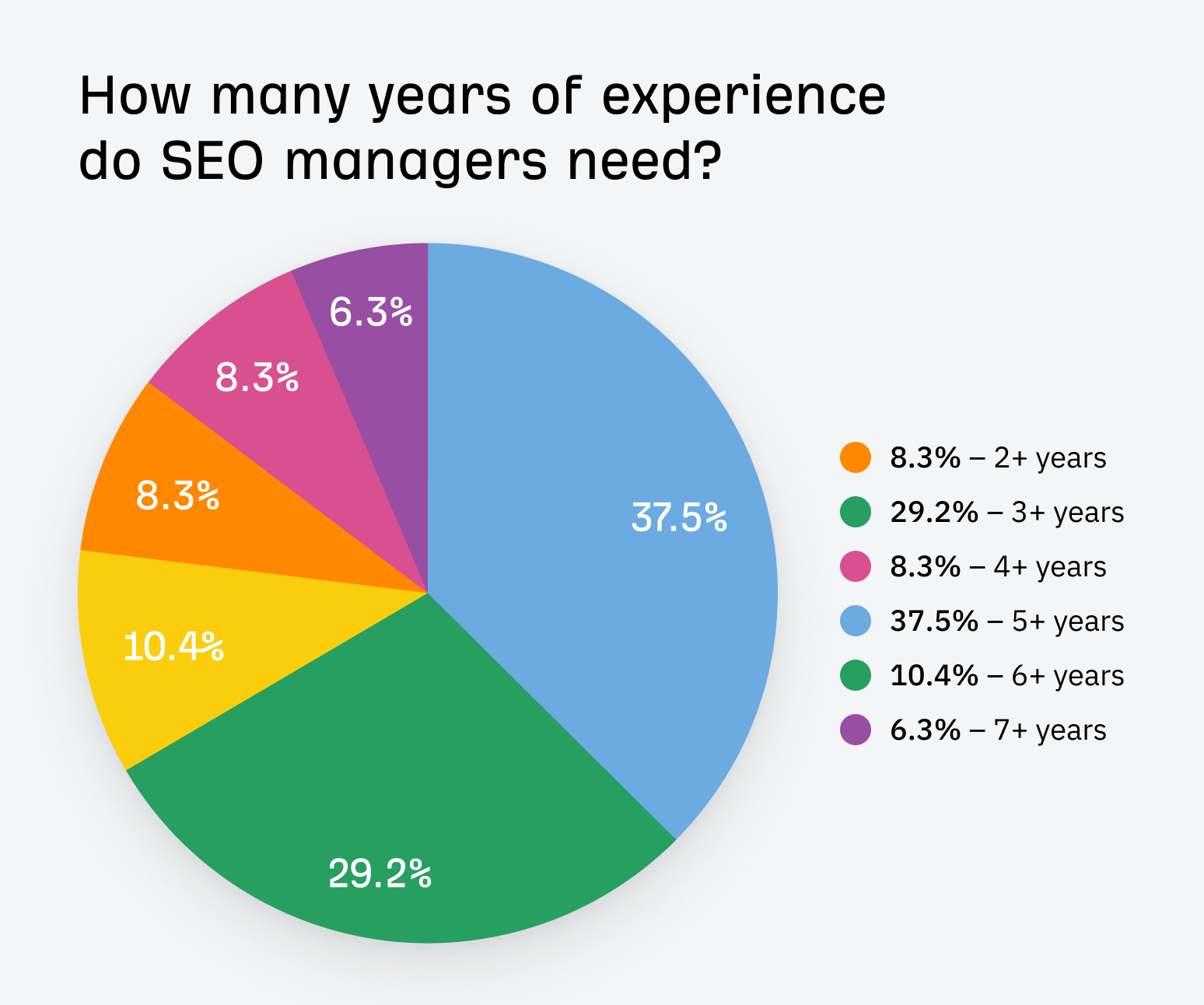
But how do you get that experience? What’s the path?
To answer this question, I checked the profiles of around 20 SEO managers’ profiles on LinkedIn and looked at their job history. Their paths were all individual and varied, but I noticed a definite trend that looked something like this:

With that in mind, here’s the path I’d suggest if you want to be an SEO manager:
1. Get an internship
60% of the SEO managers’ LinkedIn profiles I checked started out as interns.
I reached out to a few of these folks and asked if they’d recommend this as a starting point for aspiring SEO managers. All of them said yes.
Starting as an intern worked out great for me and is certainly a path I’d recommend. Coming out of school I had no idea what SEO was – I’d never heard the term and hadn’t even really considered how or why Google gives the results that it does! Going into an internship and starting “at the bottom” allowed me to build up my knowledge through working on small scale projects, with plenty of time for training and soaking up the overall “vibe” of the industry – and the amazing people within it.
I’d absolutely recommend this! I did my degree on the basis that there was a year in industry, and this is where I learned the absolute most about marketing throughout my time at university. It was also one of my first experiences in the type of workplace you can expect to be in the SEO industry, which taught me a lot.
Internships I undertook were crucial to my professional development. That’s where the real knowledge came from. Plus I got to make important connections with people in the industry.
Yes, for sure. As an intern you work on many different projects that help you shape your interests and the area you want to focus on after the internship is over.
To find internships, search LinkedIn, Indeed, or any other job site. It’s obviously best to get an SEO internship but if you can’t find one, a more generic digital marketing internship works. Most SEO managers I checked started out in such roles.
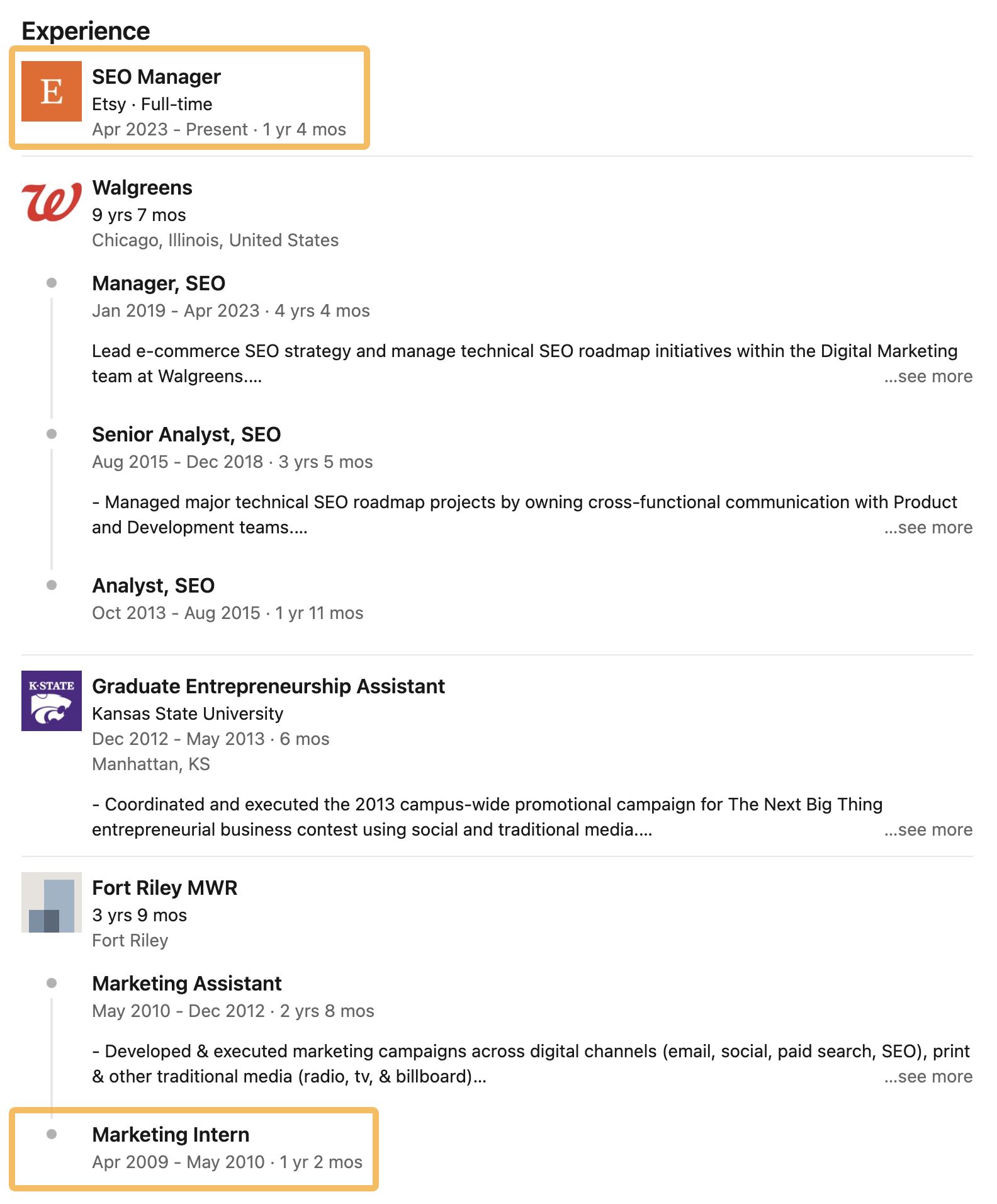
2. Become an SEO specialist
60% of the SEO managers’ LinkedIn profiles I checked were an SEO specialist at one point or another—often shortly after their internship.
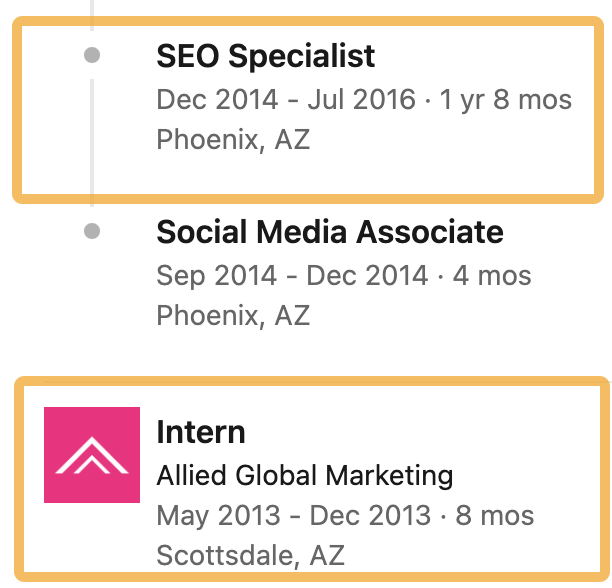
Learn more about the skills needed for this role in our analysis of SEO specialist job listings.
3. Progress through the ranks (and don’t be afraid to jump ship!)
It’s possible to go straight from SEO specialist to SEO manager, as proven by Andrew Chacon’s experience:

But most of the folks I analyzed on LinkedIn had a career progression with other roles in between. For example, Jonnathan Monsalve held SEO Team Lead and SEO Strategist positions between SEO Specialist and SEO Manager:
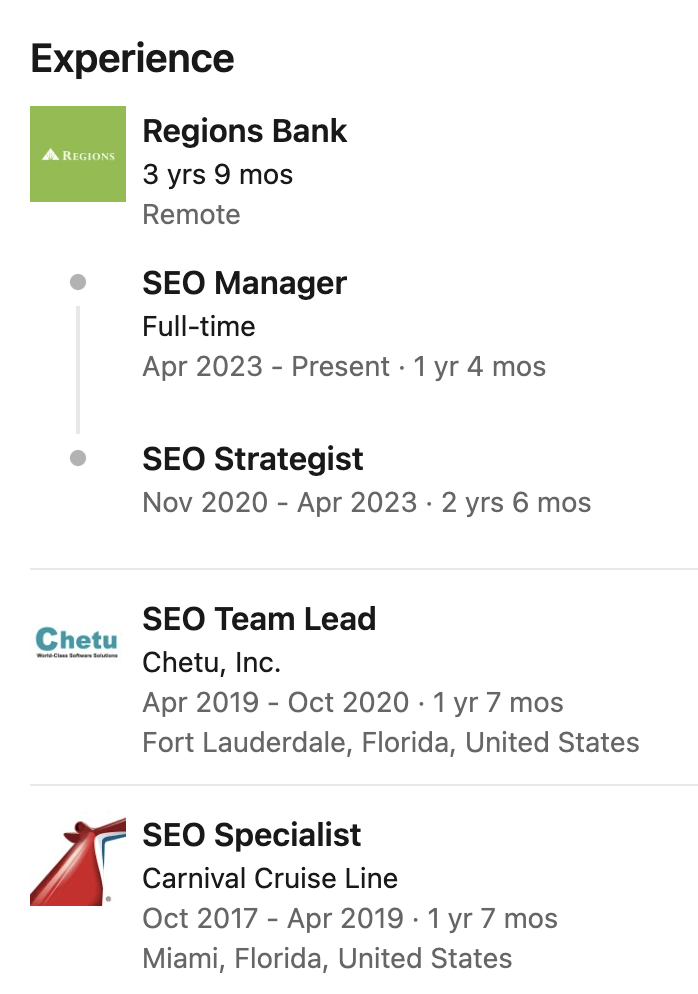
One thing I did notice, though: most people switched companies multiple times on their journey to SEO Manager—so don’t be afraid to do this too! If there’s no opportunity for progression within your current company, move!
I asked a few SEO managers how they see their careers progressing. Here are just a few of their answers.
Become an SEO lead or partner
Within my current position, I hope to continue to grow the SEO team and slowly build up from there looking to have a number of managers with seperate teams below, potentially moving into more of a lead / partner role.
Fraser wasn’t the only SEO manager to say this.
It’s basically the process of building more of an internal structure like the one below, which was featured in our guide to SEO team structures:

Become a freelancer
Three of the SEO managers I asked said that they’d like to do this in future or already are.
Outside of my current position, I do some freelance and consultant work, and doing this really supports me testing and identifying new opportunities that I can bring back into CreativeFolks and further test and measure across a wider number of clients. I would always recommend others to look at starting something on the side to allow them to further their skills and bring up new opportunities for themselves.
I found the answer above from Fraser really interesting: For him, freelancing isn’t really a career progress; it’s something he does alongside his current role that has the added benefit of helping him be a better SEO manager.
Become a marketing manager
I have a strong passion for product marketing. I have managed paid, email, programmatic, and social media marketing for other brands in the past. Therefore, I am excited about the prospect of working in product marketing or leading an entire marketing department in the future.
This seems like a pretty natural progression to me. It’s essentially going from managing one marketing channel to managing them all.
What next?
If you have no experience in the industry, an internship is definitely a good place to start. You might also want to set your sights on becoming an SEO specialist first. This is a common stepping stone in SEO managers’ career paths.
Find out what SEO specialists do here: I Analyzed 52 SEO Specialist Job Listings. Here’s What They Do and How You Can Become One
Content Copyrights Belong to The Author. All Rights Reserved.
We're A Dallas Digital Marketing Agency That is Experts At Social Media Marketing, Website Design and Emarketing and Promotion.

